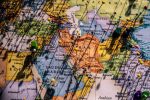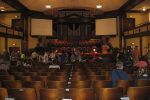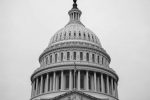Israel And The West Bank: A Biblical And Historical Perspective
Sep 2nd, 2023 | By Dr. Jim Eckman
The state of Israel captured the West Bank of the Jordan River from Jordan during the 1967 Six-Day War. Historically and biblically in terms of Israel’s history, this area is known as Judea and Samaria. It is part of the land God promised to Abraham by covenant (Genesis 12:1-7; 15:18, etc.). Since 1967, Israel has been slowly planting Jewish settlements on the West Bank, but this has accelerated and intensified under the current government of Benjamin Netanyahu. The expansion of these settlements runs counter to the so-called “two-state” solution, which refers to the creation of an independent Palestinian state alongside Israel.











